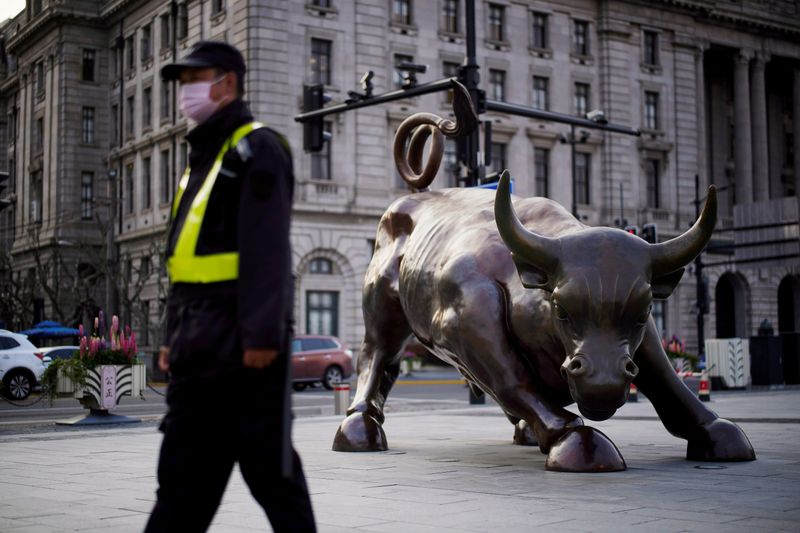This post was originally published on this site

Investing.com– Most Asian stock markets rose on Wednesday, although sentiment remained fragile amid uncertainty over China’s COVID policies and an upcoming speech by Federal Reserve Chairman Jerome Powell.
Still, most regional stocks were set for strong gains in November as expectations of smaller interest rate hikes by the Federal Reserve spurred buying into heavily sold-off markets.
Hong Kong’s Hang Seng index was by far the best regional performer in November, up nearly 25% in the month after slumping to a 13-year low in October.
The index rose 0.8% on Wednesday, with property stocks gaining the most after the Chinese government relaxed an equity financing ban on the sector.
But concerns over China’s COVID policies kept broader gains in check. The country saw unprecedented anti-government protests in recent weeks, amid growing opposition to its strict zero-COVID policy.
China’s Shanghai Shenzhen CSI 300 and Shanghai Composite indexes rose 0.2% each, and were set to end the month about 2% higher. The two indexes marked strong gains on Tuesday amid rumors that Beijing plans to scale back the zero-COVID policy, although the government has so far given no such indication.
Data also showed that Chinese business activity shrank further in November, highlighting the continued economic toll of its zero-COVID policy.
Broader Asian markets also rallied Tuesday amid speculation over China, although stocks appeared to be running out of steam on Wednesday. South Korea’s KOSPI was an outlier, rising 1.2%, and was also set for a monthly gain of over 7%. But the index still traded close to annual lows.
Indian bourses were flat after surging to record highs on Tuesday, as improving sentiment towards the South Asian economy drove sector-wide buying in the Nifty 50 and the BSE Sensex 30 indexes.
Japan’s Nikkei 225 index sank 0.4% as data showed industrial production in the country declined more than expected in October, indicating continued pressure on the economy from rising inflation and a weak yen.
Markets are now awaiting more cues on U.S. monetary policy from an address by Fed Chair Jerome Powell later in the day.
While the minutes of the Fed’s meeting suggested that the central bank is likely to slow its pace of interest rate hikes in the coming months, policymakers warned that borrowing rates will remain high until inflation shows clearer signs of slowing.
U.S. consumer inflation remained close to 8% in October, well above the Fed’s annual target of 2%.
Rising interest rates caused sharp losses in Asian markets this year, as liquidity conditions tightened and investors grew pessimistic about the economic outlook.


